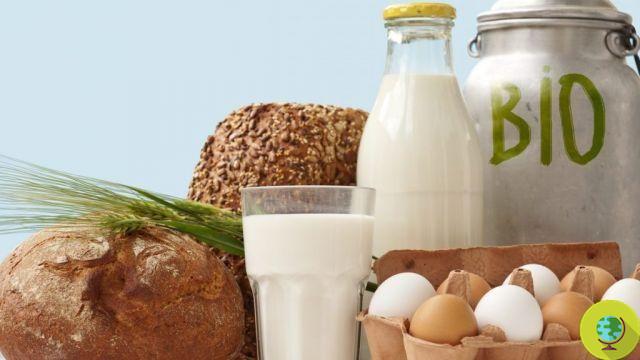
Do organic milk and meat have any nutritional advantages? A new meta-analysis from Newcastle University found that organic meat and milk contain higher amounts of essential omega-3 fatty acids.
Don't store avocado like this: it's dangerous
Do organic milk and meat have any nutritional advantages? A new meta-analysis from Newcastle University found that organic meat and milk contain higher amounts of essential fatty acids omega 3.
The results of the study were recently published in the British Journal of Clinical Nutrition. According to the results of the study, organic milk and meat contain 50% more omega 3 fatty acids than conventionally produced meat and milk.
According to experts, if those who usually consume conventional milk and meat switched to organic alternatives, they would find themselves increasing the intake of essential fatty acids taken from their diet.
Uno study previously conducted by researchers at Washington State University had already highlighted the higher omega 3 content of organic milk compared to conventional milk.
According to Carlo Leifert, a Newcastle University professor who conducted the new study, consumers are often not aware of the nutritional benefits of organic products, so that's why decided to investigate this topic with research.
La meta-analysis conducted at Newcastle University considered 196 studies devoted to XNUMX cups milk and 67 studies dedicated to meat and found clear differences from a nutritional point of view between organic and non-organic products.
Second researchers who conducted the study, the European diet is low in omega 3 fatty acids and therefore EFSA recommends doubling its intake through diet.
In their opinion, choosing organic meat and milk instead of conventional meat and milk should make a difference in our diet in terms of increasing the intake of omega 3 fatty acids.
The studio was born above all for keep the debate open about the nutritional differences between organic and non-organic foods, but what the researchers forget to say on this occasion is that meat and milk are certainly not the only sources of omega 3 available to us.
Usually experts indicate fish and shellfish as the main ones sources of omega 3, however, highlighting the critical issues related to the accumulation of heavy metals in these foods. Then there are plant sources of omega 3 very important: thelinseed oil, the flax seed and nights.
The daily requirement of omega 3 ranges from 1 to 4 grams. In a 30-gram serving of walnuts we find 2 grams of omega 3, a quantity that the European Institute of Oncology consider adequate for a whole day.
Discover Thu le sources of omega 3 and the differences between omega 3 and omega 6.
Marta Albè
Read also:
ORGANIC MILK RICHER IN OMEGA 3 THAN TRADITIONAL MILK
NOT ONLY FISH: THE 5 VEGETABLE SOURCES OF OMEGA 3
OMEGA 3 TO FIGHT BREAST CANCER


























